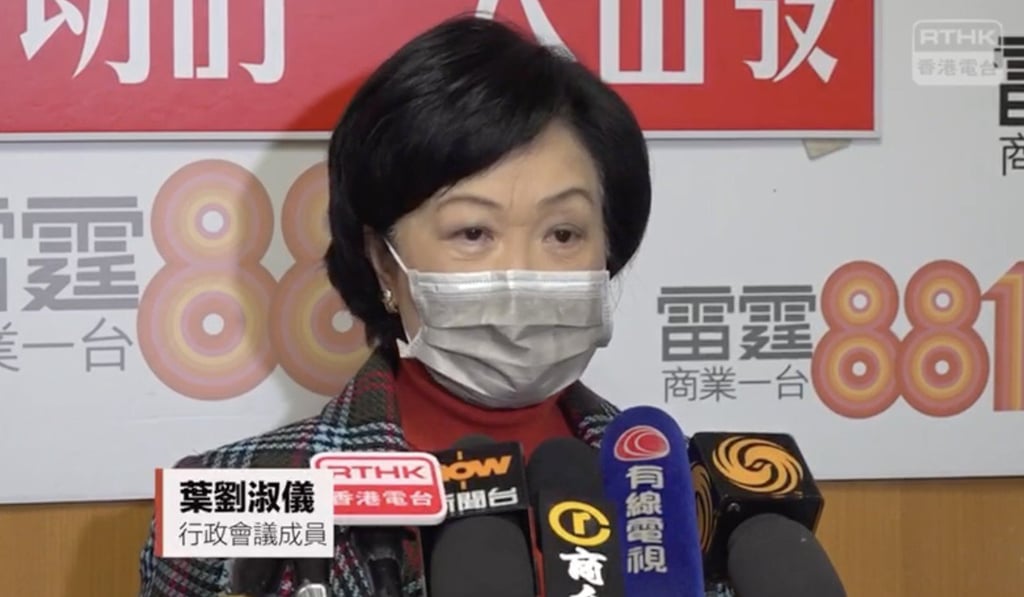Coronavirus: no emergency measures to crack down on price-gouging mask retailers, Hong Kong government says
- Executive councillor Regina Ip reveals government’s legal team has been working on new act, as six more cases bring city’s total to 42
- Ip also suggests emergency powers mean human rights can be restricted as she takes aim at striking health workers

Hong Kong’s beleaguered government is resisting pressure to crack down on price-gouging retailers using emergency legislation or categorising masks as reserve commodities under a chronic shortage that continues to draw anxious residents out in the streets in a desperate hunt for supplies.

The city was also facing difficulties enforcing quarantine orders that have placed nearly 1,200 people under isolation, with health authorities revealing that police were hunting for two people who were absconding. They were among nine who were found to be violating home quarantine orders during spot checks by police.

Earlier on Monday, veteran pro-establishment lawmaker Regina Ip Lau Suk-yee, a cabinet-level adviser to Lam in the Executive Council, revealed that the government had been mulling over options to ensure a steady supply of masks and stabilise prices, either through emergency legislation to control retailers or including them under the Reserve Commodities Ordinance.
“The ordinance gives the Executive Council the power to introduce more extensive control,” Ip told the Post. “New regulations will need to be drafted to implement a new scheme, and manpower for enforcement needs to be provided.”